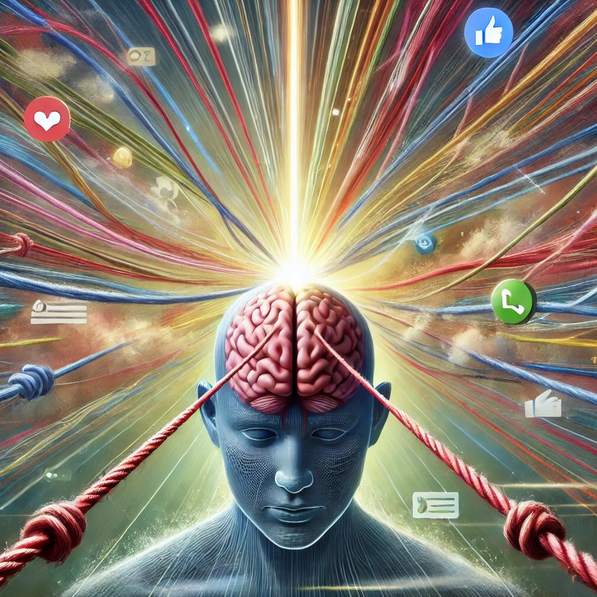The Science of Distraction: Why Your Brain Craves Focus
In a world brimming with endless notifications, social media scrolls, and multitasking demands, the struggle to focus has become a universal challenge. But why does distraction come so naturally to us? And why does your brain seem to crave focus despite being easily pulled away? Let’s delve into the fascinating science behind distraction and the innate human need for mental clarity.
The Evolutionary Roots of Distraction
Our brains are hardwired to pay attention to new stimuli. This tendency, called the “novelty bias,” dates back to our hunter-gatherer days when survival depended on being alert to environmental changes. A rustle in the bushes could signify a predator or prey, making distractions a vital tool for staying alive.
Fast forward to today, and while the dangers are different, the brain’s mechanisms remain the same. Every ping, vibration, or flashing screen is perceived as potential information that needs immediate attention—even if it’s just a meme.
The Chemistry of Distraction
At the heart of distraction lies dopamine, a neurotransmitter associated with reward and pleasure. Each time you check your phone or switch tasks, your brain releases a tiny hit of dopamine, reinforcing the behavior. This creates a loop where distractions feel good in the moment but derail long-term goals.
Interestingly, focus—the opposite of distraction—relies on a different set of brain functions. The prefrontal cortex, responsible for decision-making and self-control, plays a critical role in maintaining focus. However, this part of the brain is easily overwhelmed by stress, fatigue, or information overload, making distraction a tempting escape.
Why Your Brain Craves Focus
Despite its tendency to wander, your brain thrives on focus. When you enter a state of deep concentration, known as “flow,” your brain produces endorphins and other feel-good chemicals. This state boosts creativity, productivity, and overall satisfaction.
Moreover, focus helps consolidate memories and strengthen neural connections, enhancing your ability to learn and adapt. In contrast, constant distractions scatter your mental energy, leaving you feeling drained and unfulfilled.
How to Combat Distraction and Embrace Focus
- Limit Multitasking: Focus on one task at a time to reduce cognitive overload.
- Create a Distraction-Free Zone: Turn off unnecessary notifications and keep your workspace clutter-free.
- Practice Mindfulness: Techniques like meditation can train your brain to stay present.
- Set Clear Goals: Break tasks into smaller steps to maintain a sense of progress and accomplishment.
Distraction is not your enemy—it’s a natural part of how your brain operates. By understanding the science behind it, you can harness your mind’s craving for focus to achieve greater clarity, creativity, and contentment. After all, your brain was designed not just to survive but to thrive in a world full of possibilities.





